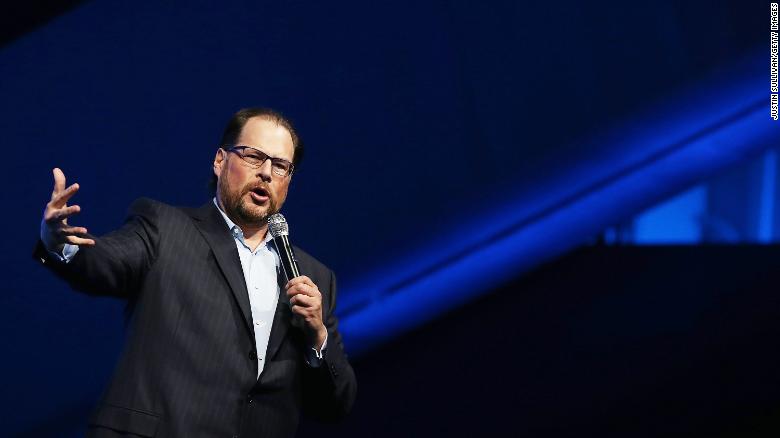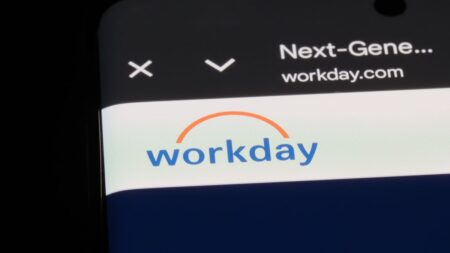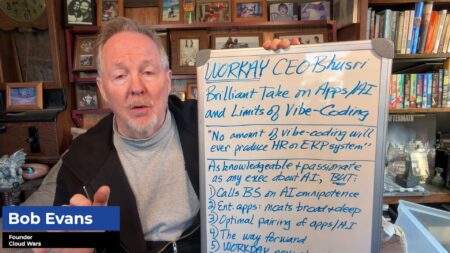The long-running love-hate thing between Oracle and Salesforce could boil over next month if Salesforce uses its massive Dreamforce extravaganza to announce that it’s shifting its cloud operations from Oracle to Amazon’s AWS.
That’s the scenario offered in a compelling LinkedIn post by Jiri Kram. In the October 4 piece, Kram builds his case on his extensive experience as a former enterprise architect at Oracle and his many years as a top architect at various Salesforce partners.
First, some quick background on the Oracle-Salesforce relationship. Since Marc Benioff founded the company 20 years ago, Salesforce has run its business on the Oracle Database. Several years ago, Oracle moved aggressively into the SaaS business and became a direct competitor of Benioff’s in the CRM space. That shift led both companies to snipe at each other quite publicly, even as Benioff and Oracle founder Larry Ellison simultaneously but unconvincingly professed their mutual affection.
We’ve also got to bear in mind that when Benioff started Salesforce 20 years ago, he was a high-flying executive at Oracle. His primary investor in the new venture was none other than Larry Ellison.
Larry vs. Jeff, Oracle vs. AWS
So in Kram’s entertaining post on LinkedIn last week under the headline of “Larry vs Jeff: an Epic Battle who Controls Salesforce, coming at Dreamforce,” he describes the challenge that Benioff faces today. Namely, that Benioff’s very modern company is running on some very old first-gen Oracle cloud technology. Kram writes:
Technically Salesforce sits on an old version of Oracle Exadata, running an old version of Oracle Linux and old version of Oracle database. That’s why it’s called “Salesforce Classic”.
And this part is increasingly more costly to run and maintain, guess why because without Autonomous, it behaves like in 2013! It’s not “self-driving, self-repairing or self-securing”.
Salesforce dilemma
The problem is that Oracle is migrating all their application to Autonomous. Therefore, unlike Salesforce will have complete control over cost and can make claims like this; “We will cut your Salesforce bill in half.”
According to Kram, this presents Benioff with an exquisitely delicate dilemma:
- if he chooses to stick with Oracle and take advantage of its new highly advanced and cloud-native Autonomous Database, Benioff gains great new levels of performance but also puts a very conspicuous plume-like feather in the cap of his SaaS rival; or,
- if he chooses AWS, Benioff gets to publicly snub Oracle but at the cost of having to rely on AWS databases that, outside of running AWS’s own business, have almost no track record at handling a business of the size, scale, complexity and growth-rate of Salesforce.
So to get the full insider’s take on what might happen at Dreamforce, by all means read Kram’s entire piece. While it includes some rather fanciful leaps, Kram knows his material inside and out, and he raises a lot of interesting points relative to not just Oracle and Salesforce but to the intense dynamics in the Cloud Wars overall.
Oracle, Salesforce, and AWS: My Predictions
- Marc Benioff is known as and will be remembered as one of the greatest leaders in the history of the technology industry. In fact, he has a chance to transcend the tech category and be considered one of the best business visionaries and leaders ever. And people who achieve that status don’t get there by allowing personal quibbles to override clear-headed business decisions. That’s why I think Benioff will not dump Oracle.
- At the same time, Benioff very clearly understands the power of leverage. So I think he’ll find a way to pit Oracle and AWS against each other to offer the best possible bundle of solutions for customers. Benioff will thereby put some breathing space between himself and Oracle, he’ll spread some love to AWS, and most important of all he’ll ensure customers get the best deals possible.
- All of this points to the strategic nature of the next stages of the Cloud Wars. Pure technological strength will come second to the ability to combine that type of tech brilliance with an equally powerful set of alliances with other top players to generate great new and extended value for customers. For example: one of the reasons Microsoft is #1 in the Cloud Wars Top 10 rankings is because it’s bundled a massive range of excellent cloud technology with unsurpassed alliances. Of particular note are Microsoft’s partnerships with #4 SAP and #5 Oracle.
- We all need to bear in mind that as fast as dizzying as the pace of change is today, we are still in the very early days of the cloud revolution. A whopping 75% or 80% of the market is still untapped. What got us to this point will not, all on its own, get us to the next point. And the best leaders will create new approaches to seize those new opportunities.
RECOMMENDED READING
#1 Microsoft, #2 Amazon Will Drive Cloud Wars Top 10 Over $40 Billion for Q3
10 Things Larry Ellison Wants You to Know about Oracle Autonomous Linux
Microsoft Versus Oracle on Autonomous Databases: Microsoft’s Approach
Salesforce Invades SAP: Links Sales + ERP Data for Manufacturing
Oracle Will Leapfrog Amazon and Get Closer with Microsoft, Larry Ellison Says
Oracle Imitates Amazon: Sells Autonomous Database via ‘Land and Expand’
Salesforce Demolishing “B2C” and “B2B” with Slick New Ad Campaign
Disclosure: at the time of this writing, Oracle was a client of Evans Strategic Communications LLC.
Subscribe to the Cloud Wars Newsletter for in-depth analysis of the major cloud vendors from the perspective of business customers. It’s free, it’s exclusive, and it’s great!








